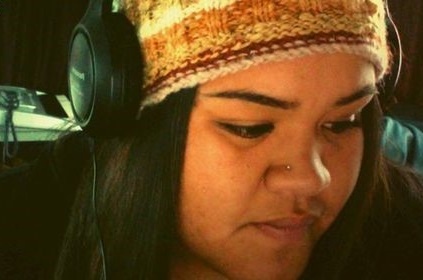DARK SIDE OF THE MOON
Dunedin Fringe Festival Club, 20 Princes St, Dunedin
08/03/2016 - 08/03/2016
Production Details
The Dark Side of the Moon is a collection of writings shaped by life’s darker episodes and thoughts.
Co-directors, Jocelyn Fa’alavelave and Sako bring together a posse of young performers / poets to present these early pieces in a dramatic and vibrant presentation.
Dunedin Fringe Festival Club, 20 Princes St, Dunedin
Tue 8 Mar
7:45pm
All Ages
$5.00 – $8.00
Get tickets »
Theatre , Spoken word , Performance Poetry , Musical ,
Sensing the joy of being and potential beauty of life beyond the darkness
Review by Terry MacTavish 10th Mar 2016
NASA has just released audio files of what might be music, recorded Mayday 1969, on the dark side of the moon. A strange noise was heard, one that sounded to the astronauts like weird music. The transcripts have been in the archives for decades, but those first astronauts debated whether they should risk reporting it. Evidence of alien life? Perhaps. Nice to know they’re musical.
There is nothing alien about Jocelyn Fa’alavelave’s Dark Side of the Moon. She is one of our own, a young Kiwi proud of her Samoan and Tokelau heritage, whose poetry and music reach out to share the story of her generation. Jocelyn is still very young, but her training has taken her from Dunedin school shows to Excel, then to PIPA (the Pacific Institute of Performing Arts), where in 2013 she impressed in Don Ioane, directed by Rachel House, and then moved on to join our wonderful THETA, touring in its Health Education programme under the directorship of Evelyn Mann.
As was demonstrated in the Dunedin Fringe’s Opening Night Showcase, Jocelyn is a singer with a luscious warm alto, but for this show she has relied on the spoken word, her own original poetry, backed by sensitive music played on keyboard and guitar by Rapture Latu. (That happens to be his real name, and Rapture happens to be her real brother, which may explain the instinctive sympathy between the two performers.) The poems come from the heart, expressing adolescent angst, but do not lack craftsmanship.
Dark Side of the Moon is described as a collection of writings shaped by life’s darker episodes and thoughts – really? Surely life cannot have afforded too many dark moments for this confident, joyous young poet and performer?
Well, as is revealed, yes, it can, with her recurrent chorus, “Black Heart, Black Soul, No Choice, No Control.” Still, Black is really only one aspect of the journey from innocence to experience, and there is nothing too traumatic to fear in this performance; nothing to dispel the relaxed and happy atmosphere: the sparkly Festival Club filled with Fa’alavelave’s whanau and Pasifika community, all warm in their support.
The poetry is loosely arranged around the theme of colour, each stage of life indicated by a simple change of lighting and sarong. First we have the engaging child, named Summer, giggling behind her hand as she creeps into her big sister’s room, confiding to us that Yellow is her favourite colour. A death brings grief, however, the hole in the ground: “He is gone, not forgotten,” she sings.
Her secret reading of her sister’s journal marks the shift to Red to represent the young girl, beautiful hand gestures indicating a dawning sensuality in exotic Island style, but language firmly grounded in local ‘kulcha’ as she worries whether she’s pretty enough, skinny enough, and tells us ecstatically, “It’s amazing how one text can change your day.” But where love enters, heartbreak follows.
The significance of religion in Pasifika society is plain in the shift to Blue, as she sings hopefully, ‘There’s a man who’ll take your pain away,” and tries, between comedy and earnest, to write Him a letter, reminding Him firmly that He’s a forgiving God. “Can’t sleep at night, knowing my soul is trying to fight the darkness… just tell me You’re there!” Typically, as the script teeters on the brink of melodrama, there’s a quick throwaway line: “You must be laughing at me, eh.”
“Green as the grass, green as the trees, green as the plant that has five leaves!” The audience rocks with laughter as, accompanied by Rapture’s guitar, Fa’alavelave delivers her naughty, jaunty paean of praise to Green. Yet this too has its dark side: “With every breath I take, I forget every mistake I ever made.”
I watch the rapt faces of young Pasifika women in the audience and am glad they are emboldened to speak with their own voice. No need to go hunting aliens, we have enough to learn right here, from this vibrant, colourful generation.
Fa’alavelave may be telling the dark side, but her pleasure in being onstage, holding an admiring audience, easily eclipses past sadness. We are left with a sense of the joy of being young, and the potential beauty of life, that is anything but dark. La manuia le malaga, Jocelyn and Rapture!
Copyright © in the review belongs to the reviewer






Comments